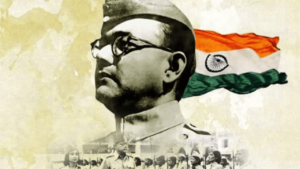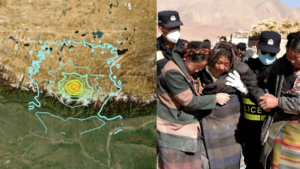In a landmark development, India and Malaysia have upgraded their bilateral relationship to a Comprehensive Strategic Partnership during Malaysian Prime Minister Anwar Ibrahim’s visit to India.

In a major diplomatic breakthrough, India and Malaysia have elevated their bilateral relationship to a Comprehensive Strategic Partnership. This significant development was marked by the recent visit of Malaysian Prime Minister Anwar Ibrahim to India, his first official visit since taking office in 2022. The visit underscores a renewed commitment to strengthening ties between the two nations, moving beyond past strains and focusing on a future of enhanced collaboration across multiple sectors.
The Context of the Visit
The timing of Prime Minister Anwar Ibrahim’s visit to India was particularly notable. The move represents a concerted effort by the two countries to restore and revitalize their bilateral relations, after a long period of diplomatic tensions over challenges to India across Jammu and the special status of Kashmir in 2019. Choosing to elevate the relationship to a broader strategic partnership after is evidence of shared progress and mutual recognition that each has tested leadership.
Prime Minister Ibrahim’s visit began on Monday night and included ultra-platform meetings with Indian Prime Minister Narendra Modi. The discussions covered a wide range of problems, from new technologies to conservation and cultural exchange. The visit marks the second milestone in the history of members of the India-Malaysia family, setting the stage for a deeper and more cooperative partnership.
Significant Agreements and Pacts
During the visit, India and Malaysia signed several key agreements which can be anticipated to noticeably enhance their bilateral cooperation. Here are a number of the most critical pacts:
- Employment and Repatriation Pact
One of the most impactful agreements signed was the pact on the recruitment of Indian workers in Malaysia and the protection of their interests. This agreement addresses longstanding concerns about illegal immigration and human trafficking. By formalizing the recruitment process and ensuring the protection of workers’ rights, both countries aim to mitigate these issues and foster a more orderly migration system. This pact is expected to improve the working conditions for Indian expatriates in Malaysia and enhance bilateral cooperation in labor matters.
- Digital Technology Cooperation
In a move that highlights the growing importance of technology in international relations, India and Malaysia have agreed to boost cooperation in digital technologies. This includes the establishment of a digital council and the formation of a start-up alliance. The digital council will facilitate collaboration in areas such as cybersecurity, artificial intelligence, and digital infrastructure, while the start-up alliance aims to promote innovation and entrepreneurial ventures between the two countries.
- Economic and Trade Enhancements
Prime Minister Modi and Prime Minister Ibrahim emphasized the need to expand trade and investment opportunities between India and Malaysia. They agreed to accelerate the review of the Comprehensive Economic Cooperation Agreement (CECA) to ensure it reflects current economic realities and opportunities. This agreement is expected to open up new avenues for trade and investment, particularly in sectors such as semiconductors, fintech, and sustainable energy.
- Defense Sector Collaboration
The leaders also explored new possibilities for collaboration in the defense sector. Both nations are committed to enhancing their security cooperation and addressing common challenges such as terrorism and extremism. The discussions included potential joint projects and initiatives that could strengthen their defense capabilities and promote regional stability.
- Cultural and Educational Initiatives
In addition to the focus on economic and technological cooperation, the visit also highlighted the importance of cultural and educational exchanges. The two leaders agreed to establish an Ayurveda Chair at Malaysia’s University Tunku Abdul Rahman and a Tiruvalluvar Chair at the University of Malaya. These initiatives are aimed at promoting mutual understanding and cultural appreciation, as well as enhancing educational ties between the two countries.

Implications for Bilateral Relations
India and Malaysia’s decision to upgrade their relationship to a more strategic partnership marks a new era in their bilateral relations. This increase indicates that both countries want to overcome their differences and build a strong and cohesive alliance. The timing of the decision coincides with efforts by both countries to increase their regional influence and address global issues.
India sees its close ties with Malaysia as part of a larger strategy to increase engagement with Southeast Asia and balance China’s growing power in the region. By cultivating strong ties with Malaysia, India hopes to strengthen its position in the Indo-Pacific region and promote a more balanced regional policy.
For Malaysia, this enhanced partnership with India opens the door to enhancing economic and structural ties with one of the world’s largest and fastest growing countries. MoUs signed during the visit will bring huge benefits to Malaysia, such as more trade, investment and teamwork in the industrial sector.
Economic and Trade Prospects
The visit has opened up several promising avenues for economic cooperation between India and Malaysia. Both leaders expressed their commitment to expanding bilateral trade and investment, with a focus on several key sectors:
- Oil and Gas: Malaysia has significant expertise in the oil and gas sector, and India is increasingly opening up its drilling sectors to international players. The visit highlighted opportunities for Malaysian businesses to explore new ventures in India’s oil and gas industry.
- Technology and Innovation: The emphasis on digital technology and innovation reflects both countries’ recognition of the importance of technological advancement in driving economic growth. The establishment of a digital council and start-up alliance is expected to facilitate collaboration in areas such as artificial intelligence, fintech, and quantum computing.
- Sustainable Energy: Both nations have expressed a commitment to promoting sustainable energy solutions. The visit included discussions on potential collaborations in clean and renewable energy, which are crucial for addressing global environmental challenges.
Strategic and Diplomatic Dimensions
The Comprehensive Strategic Partnership also carries significant strategic and diplomatic implications. The upgraded relationship reflects a shared commitment to upholding international laws and promoting regional stability. This includes a commitment to freedom of navigation in international waters and support for peaceful resolution of disputes, particularly in the South China Sea.
Prime Minister Ibrahim’s visit also included meetings with India’s President Droupadi Murmu and External Affairs Minister S. Jaishankar. These engagements underscored the depth of diplomatic relations and the potential for further collaboration in various sectors.
The India-Malaysia CEOs Forum
A key highlight of the visit was the ‘Meeting of India-Malaysia CEOs Forum,’ which provided a platform for business leaders from both countries to explore mutual opportunities. Union Minister of Commerce and Industry, Piyush Goyal, emphasized the importance of strengthening trade cooperation and highlighted several sectors where India and Malaysia could collaborate more deeply, including education, healthcare, and tourism.
The forum also addressed opportunities in the oil and gas sectors, with an invitation for Malaysian businesses to explore India’s expanding energy market. This interaction between business leaders is expected to foster growth and innovation, further strengthening the bilateral relationship.
In addition to the agreements and forums, the visit opened up new possibilities for collaboration in various fields. The focus on oil and gas, technology, and sustainable energy reflects both countries’ commitment to exploring new opportunities and addressing global challenges. The establishment of the Ayurveda and Tiruvalluvar Chairs is expected to promote cultural and educational exchanges, further enhancing the bilateral relationship.
In Short!
Prime Minister Anwar Ibrahim’s visit to India marks a milestone in India-Malaysia relations. The development of broader strategic communication represents a new era of cooperation and mutual benefit. Key agreements signed during the visit are expected to pave the way for deeper cooperation and closer ties between the two countries, as well as discussions on trade, technology and security.
As India and Malaysia embark on this new chapter, the partnership holds great promise for future growth and cooperation. Committed to addressing global challenges and enhancing mutual interests, both countries are poised to build strong and lasting ties that benefit their people and contribute to regional stability firm.
Read Next:

The Psychology of Love: Why Valentines Day Matters More Epic Than You Think
Discover the psychology of love and why Valentines Day is more important than you think. Learn how love impacts the brain, strengthens relationships, and boosts

Premier League Highlights: Arsenal Humiliate Man City 5-1, Spurs and Palace Secure Crucial Wins
Arsenal demolished Manchester City 5-1 in a statement premier league highlights win, reigniting their title hopes. Meanwhile, Crystal Palace stunned Man United 2-0, and Tottenham

How Budget 2025 Impacts the Indian Middle-Class: Major Tax Benefits and Glaring Omissions
Budget 2025 offers major tax relief to the middle class, including zero tax on incomes up to ₹12 lakh. However, it misses out on incentives

Degrees vs Employability: Why “Highly Qualified Degree Holders” Struggle to Find Jobs While “Less Qualified Individuals” Get Hired Faster!
Many highly qualified individuals struggle to secure jobs, while less qualified candidates get hired quickly. This Degrees vs Employability paradox is caused by employer preferences,

The Power of Mindset: Why Looking Poor Doesn’t Make You Poor, but Thinking Poor Does!
Discover why looking poor doesn’t define your wealth but thinking poor does. Learn the power of mindset and how a growth-oriented mindset can lead to

Overthinking: How It’s Damaging Today’s Youth – Causes and Cure in 2025
Understanding how overthinking is silently damaging today’s youth, from its causes rooted in societal pressure and social media to its long-term effects on mental health.

Netaji Subhash Chandra Bose: An Epitome of Epic Leadership
Discovering the incredible life of Netaji Subhash Chandra Bose, a leader whose vision, courage, and determination redefined India’s freedom struggle. Explore his leadership qualities, ideology,

Global News Headlines Today: From Gaza Ceasefire to Blue Origin’s Massive 2025 Milestone
Explore today’s top global news headlines, from the Gaza ceasefire and Blue Origin’s historic spaceflight to Apple losing its top spot in China’s smartphone market.

The Hidden Danger of Social Media Nudity: A Threat to Today’s Youth in 2025
Understanding how social media nudity is impacting the youth and their future potential. Learn about the risks of unregulated content, cultural sensitivities, and solutions for

FA Cup 2024: Manchester United Survive Arsenal Test to Advance in FA Cup Fourth Round
Manchester United defeated Arsenal in a thrilling FA Cup third-round encounter, with Atlay Bayindir’s heroics sealing the win. Read about key moments, standout performances, and

Supercopa de España: Barcelona Dominate Real Madrid 5-2 to Claim Supercup
Barcelona delivered a stunning 5-2 victory over Real Madrid in the Supercopa de España final. Read about the key moments, star players, and the significance

Global News Highlights Today: India’s Metro Milestone, US Aid Shift, iOS Stunning Updates and More!
Explore today’s global news highlights, including the Tibet earthquake, political tensions in South Korea, LA wildfires, US aid shifts, and India’s metro milestone. Stay informed
